‘Are you my mother?’: The village of strong women that raised me
Navigating the world without my biological mother would not have been possible without the women who chose to raise me.
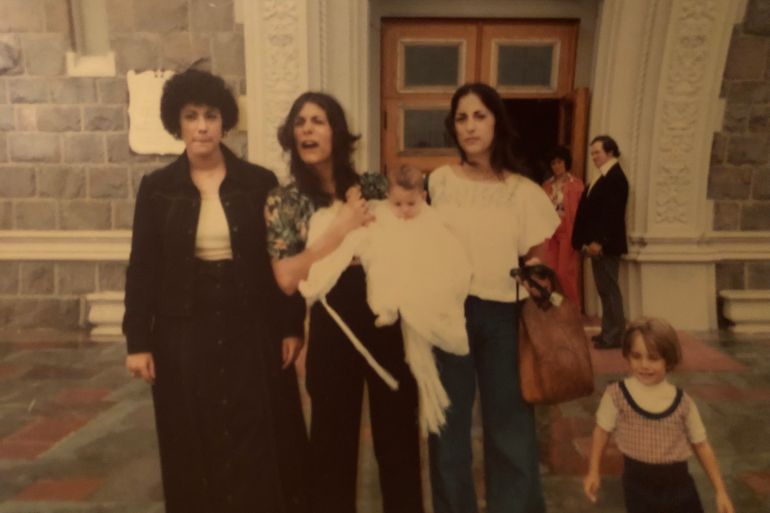
“Did you ask your mother?” asks the woman in the school office, handing a seven-year-old me an unsigned permission slip. She asks this question as if I am like all my friends, but I am not. I have known this from a very young age. My mother, who shares 50 percent of my DNA is on the West Coast of America, while I am on the East. I cannot ask her to sign the permission slip.
I stare at the woman, whose last name is a gem, Diamond or Ruby, I cannot remember. I take the permission slip. Stuffing it into my book bag along with half of a peanut butter and jelly sandwich I did not eat at lunch, I nod and say, “I’ll get it signed.”
Keep reading
list of 4 itemsA Greek woman feared her ex-partner. He killed her outside a police station
Nigeria’s women drivers rally together to navigate male-dominated industry
Members of London’s Garrick Club vote to let women join for first time
The truth is, I feel confused.
I do not know who my mother is. I do not have a mother, though I am surrounded by women. There is a grandmother, a foster mother, a sister who shares none of my blood, and cousins and aunts who are always around.
Yet, I am motherless.
A little bird
PD Eastman wrote the children’s book Are You My Mother? in 1960. It was one of my favourites when I was a kid.
In it, a little bird breaks free from his egg, born into his nest atop a tree. He soon realises something is wrong. His mother is gone. The little bird goes and searches for her though he has never seen her before and does not know what she looks like.
The bird asks anyone (or anything) that he comes across in his journey, including a hen, a cow, a dog, a car, and others if they are his mother. Finally, the bird is returned to his nest, and his mother comes flying back and asks him if he knows who she is. The baby bird knows all the animals and things that she is not and the one thing that she is, his mother.
Like the little bird, I too, from about the age of four, searched for my mother.
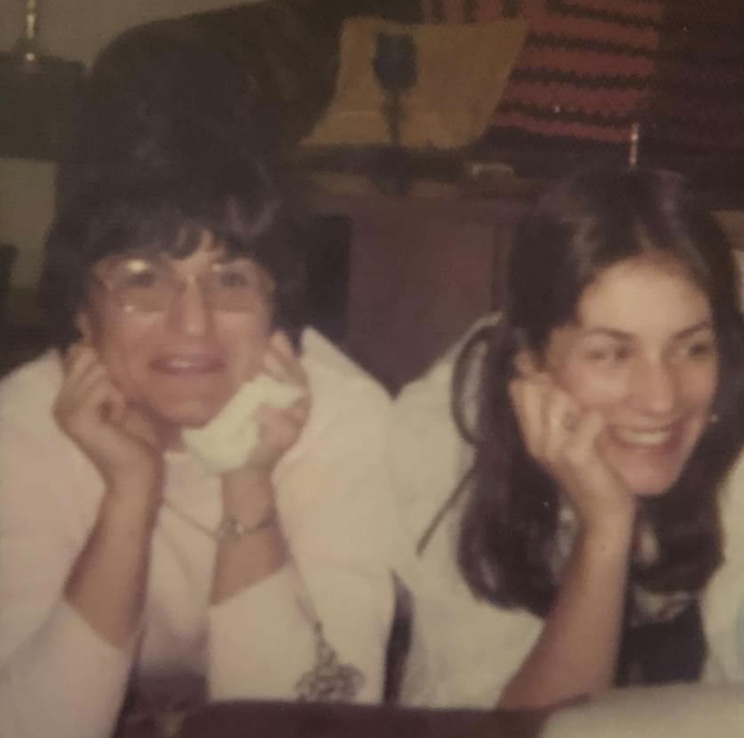
Searching
The history of my biological mother, Denise, is still not clear. I am now 46 years old and have heard stories that are hard to confirm or deny. She lived in an apartment above my aunt’s while trying to raise me and my brother as she also succumbed to a drug addiction that made it impossible. My brother and I were found by my aunt, I believe, a spilled bottle of milk next to my crib.
Child protective services were called and they took us away. My grandparents, after getting temporary custody, fought against my father in court to keep us because he was an addict too.
Truth and rumours swirl together, an amalgamation that is hard to unravel even now. The people who hold the answers are either dead or have forgotten. I do not know how to make sense of my history.
What I do know is that I longed for my mother to mother me. I was like the little bird in Are You My Mother? searching for her, even as I looked past the women in front of me who fed and nurtured me, who provided me with all the things that I needed to grow up.
My biological mother mothered her biker boyfriend’s daughter 3,200km (2,000 miles) from where I was being raised. I found this out when I was about six years old in letters that she sent my brother and me. One day, I hoped I would find her in Los Angeles. We would swim in the apartment building pool in her neighbourhood of Van Nuys. I would be hers and she would be my mother.
But when I was nearly eight, she died and aside from the moments I spent with her in the first 10 months of my life, I never knew my mother.
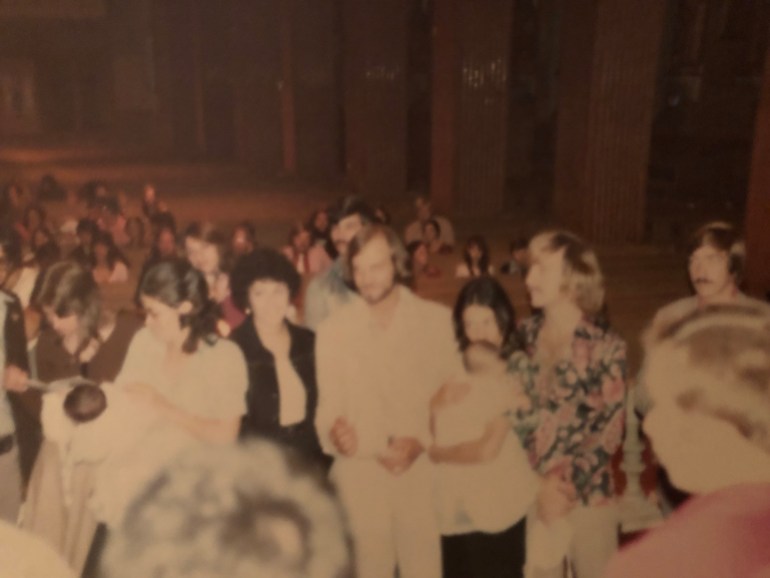
My mother was gone
I would store more memories of her death than her life, for I would come to know it better. I remember the burial, the confusion, and the grief of those surrounding me.
It was spring in New England, and everything had just started coming back to life. The flowers sprung up from the ground, buds waiting to open in search of the sun, some even left a faint scent as we walked past on our way to the church. My mother had been cremated on the West Coast and buried back home, with her family in Boston.
I mourned more for what I knew a mother should be than I did for the woman I really had not known. It was the feeling of missing something I never actually had. I felt so sorry for those who had a reason to miss her, because they knew her. I also felt angry that I never had the chance. There was guilt too. Did my missing her somehow negate the feelings I had for the women who were raising me in her absence?
Even after her death, I longed for her.
“Are you my mother?” I whispered to the wind, to the air, to the heavens knowing she was somewhere. My mother was alive in the plant, a heart-leaf philodendron, my grandmother, her own mother, nurtured in the absence left by her death. Someone had given it to us as a gift after her funeral. My mother was in the letters she sent my brother and me that I stored in the basement and would reread on occasion and then forget about until I had my own children and rediscovered them.
On particularly difficult days I soothed myself with the far-fetched reassurance that my mother was still alive and searching for me just as I searched for her.
I knew the truth though, the one that followed me as I watched my friends with their own mothers. My mother was gone.
Still, my search continued. When I was about 12, I tried to find her grave and afterwards, I often found myself in the cemetery looking for it with my childhood friends. I was a quiet, timid child, too ashamed to ask my grandparents where they had buried her because I could not remember.
My mother faded into nothing more than a ghost occupying blank spaces where memories should have been.
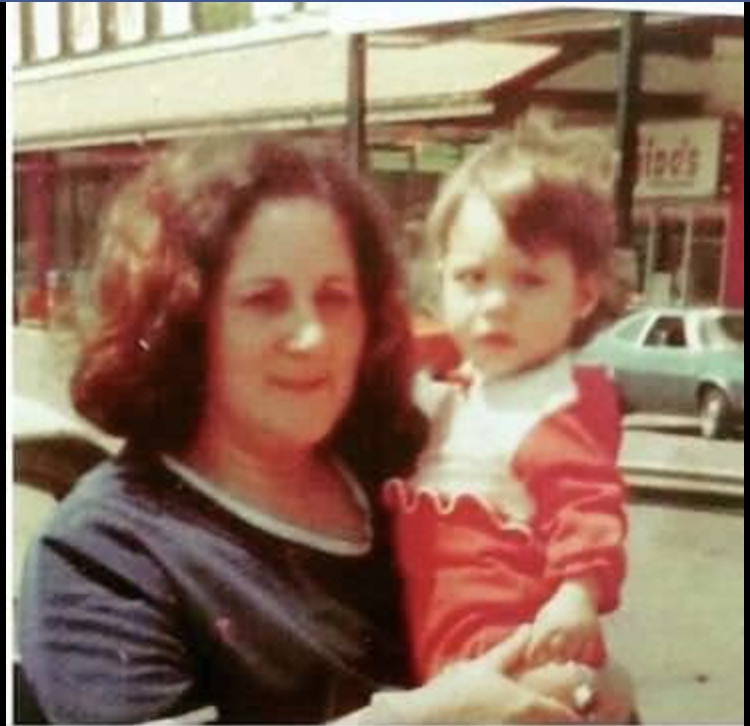
Gram and Esther
My grandmother, my mother’s mother, took us when my mother left and cared for us, providing us with clothes, food, and shelter.
Gram was an excellent planner and provider, but she was also someone who did not want to take on the care of two kids, even if they were her grandchildren. She had raised her only daughter and she and my grandfather were free to live as they wanted, at least until we came along.
The state offered to help with our care and provided Gram with a mother’s helper.
Esther was a single mother in her 40s who was raising her three kids in subsidised housing. She took care of us during the day when Gram worked and many nights and weekends when my grandparents went out. She would have preferred to care for a boy, they were easier, she thought, like her own son. A boy that was potty trained and had some level of independence.
My brother was perfect and beautiful with blonde hair and green eyes. I was cross-eyed with patchy fuzz on my head due to a cowlick that had already formed on my scalp and a goofy, half-tooth grin.
I was everything Esther did not want, she would tell me years later, while explaining that I became everything she needed. We became best friends. She had a hard time raising her own kids as a single parent and I think I gave her a second chance in a strange way. I think we saved each other.
Esther instilled confidence in me and loved me. “I will love you,” she said, “no matter what.” She loved me without question – the way a mother would. Her love was unconditional.
“Am I pretty?” I would ask when I felt alone and unwanted.
“You,” she would say, “are the most beautiful girl in the world,” providing me with the words I needed at the exact moment when I needed them. It was not about my looks or how pretty I was. I was asking, I know now, if I was loved and wanted.
Susan
I began calling Esther my foster mother only after her death, which came just before I graduated from college. It became an easier way to define and explain our relationship whenever people asked, which they did often because my childhood and my history were complicated.
Esther’s daughter Susan was 12 years older than me. She carried me on her hip, mothering me through her junior high school days. Susan seemed to sense how much I needed to be loved and she took her role seriously even as we grew up. When I was in college, I would return home on vacations and visit Susan, who had married and had children.
We would sit quietly picking through her basket filled with different types of tea. I would listen to her tales of early motherhood, and she would tell me how it was hard to believe you could love your kids so much and how important it was to be your child’s advocate. I would store her words away, recalling them years later when I had my own children.
I felt lucky for the time Susan spent with my oldest two, the only children of mine she had the chance to meet before she passed away from brain cancer just as Esther had years before.
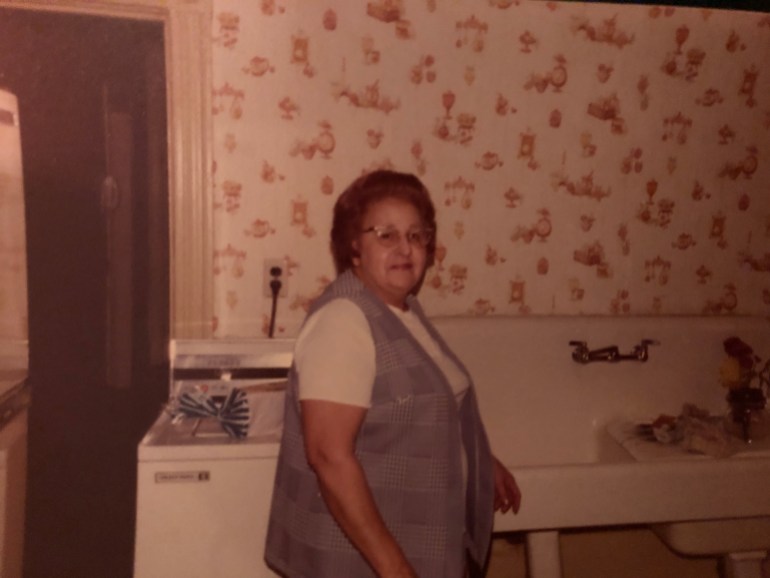
Mothering my children
While Esther and Susan helped nurture me throughout childhood, my grandmother worked to provide me with all the things I needed. She was not the easiest person when I was a child, but Gram would come to be one of my closest friends and would stay with me following the births of my first three children. After the birth of my fourth child, Gram was sick with cancer. Her sister, my aunt, Joanne, would come in her place.
My grandmother’s sisters, the fun one, Joanne, who spoiled us all, and Pauline, the cool one who moved from Boston to New York, supported me even during the most difficult times, and continue to mother me and help me raise my own children today.
They remain a formidable presence in my life even now after most of my family is gone. They listen as mothers would when I need advice about marriage, about life, about all the things I imagine mothers talk to their grown daughters about. My children lovingly refer to them as the aunts.
It was when I first became a mother myself at the age of 29 that I realised how all the women that surrounded me had mothered me.
These women raised me when my own mother could not, gathering around me – protecting, providing, and advising. There were so many of them.
The aunt, Carmella, who knitted a pink blanket that I still have. She bathed me in her kitchen sink and forever I am reminded of her when I hear the theme song from The Young and the Restless, the soap opera we used to watch every afternoon. Her back yard was filled with roses. She taught me to dip cookies into coffee as I sat on her lap after a big meal of spaghetti and meatballs. She was my great-grandmother’s middle sister.
There was also my cousin who invited me into her bedroom and let me pick from a million different perfumes and spray them in furious and frantic bursts until I was covered in a cloud of mist.
My own mother-in-law mothered me even as a woman in my late 20s. She guided me through life as a new mother with the expert wisdom of a woman who had raised six children. She became not only a surrogate mother but a best friend and a confidant.
Mothers by choice
These women, how lucky I am. Navigating the world without my biological mother would not have been possible if they had not helped raise and mother me. How lucky all the motherless girls are who have been taken in and raised by a strong village of women who have loved, nurtured, and shown them the fine art of mothering without blood and DNA, without the necessity of being assigned the role. Instead, they volunteered and became mothers by choice.
I never called anyone “mom”. Not once in my 46 years. I thought it was because the word was reserved for the woman who birthed me and wanted to mother me but simply could not because her addiction got in the way. I realise now that maybe I never called one woman mother because I had so many who have played that role in my life at various times and in a multitude of ways. Like the little bird, I finally found my mother, but she was not one woman. I did not have one mother; I had a million. I have been lucky.